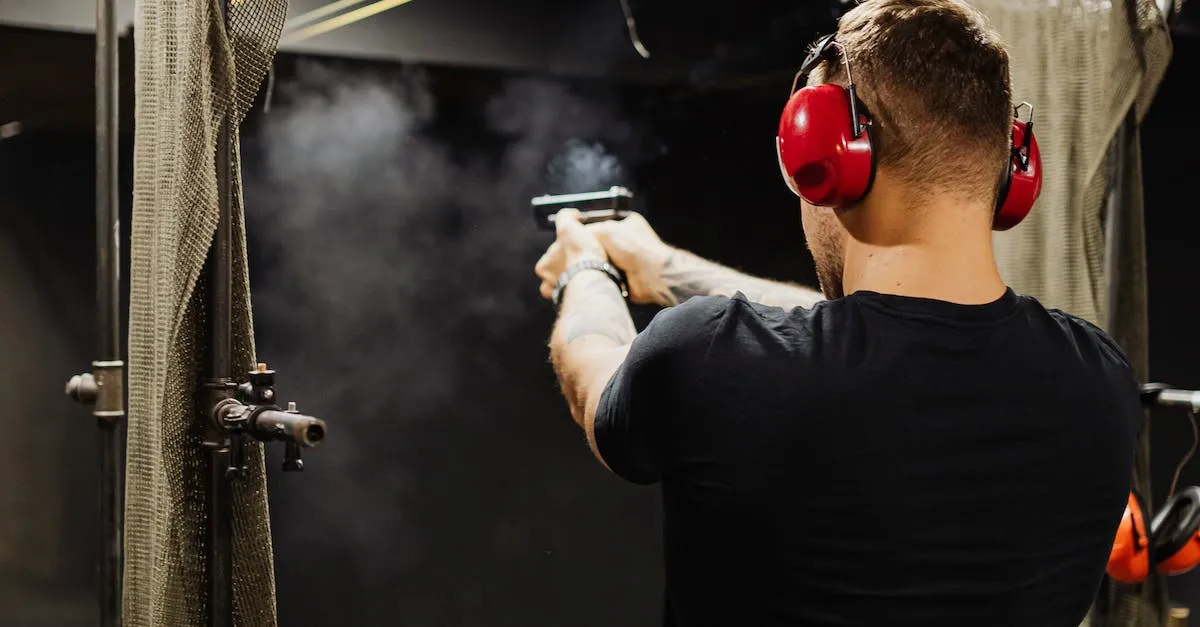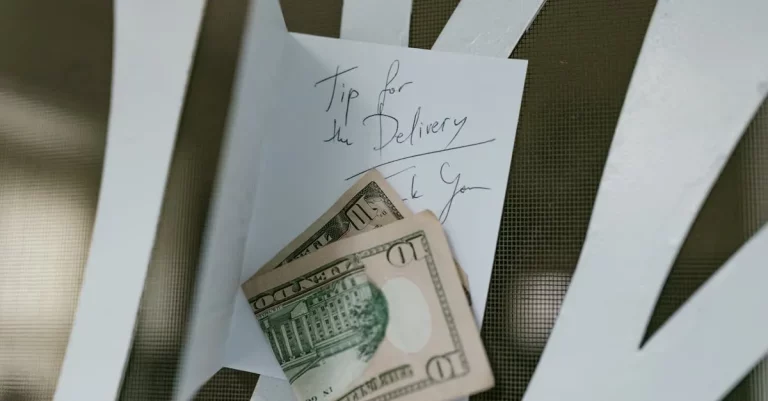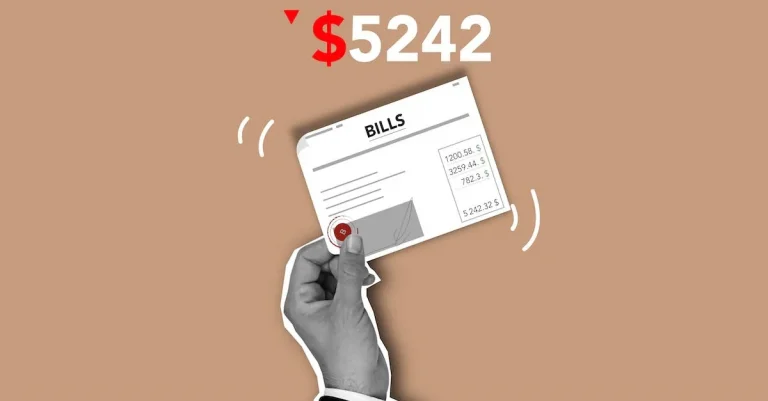Can A Felon Go To A Gun Range In Texas?
Texas has some of the most permissive gun laws in the United States, but what rights do convicted felons have when it comes to using guns for sport and training in the state? Can a felon go to a gun range in Texas? The quick answer is generally no, but there are some exceptions.
In this comprehensive guide, we’ll cover everything you need to know about whether felons can visit shooting ranges in Texas. We’ll look at the relevant laws, exceptions, and penalties that could apply.
Texas Laws on Felons and Firearms
When it comes to felons and firearms, Texas has strict laws in place to ensure public safety. The possession of firearms by felons is illegal, and there are additional restrictions on ammunition as well.
Possession of Firearms by Felons is Illegal
In Texas, felons are prohibited from possessing firearms. This is outlined in both state and federal laws. Under federal law, it is a crime for anyone who has been convicted of a felony to possess a firearm or ammunition.
Texas law mirrors this prohibition, making it a felony offense for a convicted felon to possess a firearm.
The rationale behind this law is to prevent individuals with a criminal history from obtaining firearms, which could potentially be used to commit further crimes. By restricting felons from possessing firearms, the law aims to enhance public safety and reduce the risk of gun-related violence.
Restrictions Apply to Ammunition Too
It’s not just firearms that felons are prohibited from possessing in Texas. The law also extends to ammunition. This means that convicted felons are not allowed to possess, purchase, or transport ammunition in the state.
The restrictions on ammunition possession by felons are in place for similar reasons as the restrictions on firearms. By limiting access to ammunition, Texas aims to prevent felons from being able to use firearms effectively and reduce the potential for gun-related crimes.
It’s important to note that these laws apply to all felons, regardless of the nature of their conviction. Whether someone was convicted of a violent crime or a non-violent offense, they are still subject to the prohibition on firearm and ammunition possession.
If a felon is found to be in possession of a firearm or ammunition in Texas, they can face serious consequences, including additional criminal charges and potential imprisonment. It’s crucial for felons to understand and comply with these laws to avoid legal trouble.
For more information on Texas laws regarding felons and firearms, you can visit the official website of the Texas Department of Public Safety: https://www.dps.texas.gov/.
Exceptions to the Law
While it is generally illegal for felons to possess firearms, there are some exceptions to the law that allow certain individuals in Texas to go to a gun range. These exceptions include felons whose rights have been restored and spouses who are able to gift firearms in certain cases.
Felons Whose Rights Have Been Restored
In Texas, felons whose rights have been restored may be able to go to a gun range. The process of having rights restored typically involves completing a period of probation or parole, paying fines and restitution, and demonstrating good behavior.
Once the individual’s rights have been restored, they are no longer considered a felon in the eyes of the law and are able to exercise their Second Amendment rights.
It is important to note that the process of restoring rights can vary from state to state, so it is crucial for felons to understand the specific requirements in their jurisdiction.
Spouses Can Gift Firearms in Some Cases
In certain cases, spouses of felons may be able to gift firearms to their partner. This exception applies when the spouse is legally allowed to possess firearms and the gift is made in compliance with all applicable laws and regulations.
However, it is important for spouses to consult with an attorney or legal expert to ensure they are following the proper procedures and not inadvertently violating any laws.
It is worth mentioning that these exceptions may have additional requirements or limitations depending on the specific circumstances. It is always advisable to consult with legal counsel or local authorities to fully understand the laws and regulations regarding felons and firearms in your area.
Using Firearms at Shooting Ranges
Shooting ranges provide a controlled environment where individuals can practice their shooting skills and learn about firearm safety. However, there are certain regulations and restrictions in place to ensure the safety of everyone involved.
If you are a felon, you may be wondering whether you can go to a gun range in Texas. Let’s explore the rules and exceptions surrounding this issue.
Firearm Rentals are Restricted
Typically, shooting ranges have strict policies when it comes to renting firearms. Due to federal laws and regulations, felons are prohibited from possessing firearms. As a result, most gun ranges in Texas will not allow felons to rent firearms for use at their facilities.
This restriction is in place to comply with the law and prevent potential legal issues.
It’s important to note that these restrictions are not put in place to discriminate against felons, but rather to adhere to the regulations set forth by the government. The primary concern is the safety and well-being of all individuals at the shooting range.
Exceptions May Apply at Some Ranges
While the general rule is that felons cannot use firearms at shooting ranges, there may be exceptions in certain cases. Some shooting ranges may allow felons to use their own firearms if they have successfully completed the necessary legal requirements to restore their gun rights.
If you are a felon looking to use a firearm at a shooting range, it is crucial to consult with an attorney or legal professional who can guide you through the process of restoring your gun rights. They can provide you with the necessary information and help you navigate the legal system to determine whether you are eligible to possess firearms.
Remember, every shooting range may have its own specific policies and regulations, so it’s always best to contact the range directly to inquire about their rules regarding felons and firearm usage.
Penalties for Violating Firearm Laws
When it comes to firearms, it is crucial to understand the legal consequences of violating firearm laws. This section will discuss the penalties that felons may face if they attempt to go to a gun range in Texas.
State Penalties
In Texas, felons are generally prohibited from owning, possessing, or purchasing firearms. The state takes firearm laws seriously and enforces strict penalties for those who violate them. If a felon is caught attempting to go to a gun range, they can face serious legal consequences.
Individuals found in possession of a firearm while being a convicted felon in Texas may be charged with a third-degree felony. The penalties for this offense can include imprisonment for up to 10 years and fines of up to $10,000.
It is important to note that these penalties can vary depending on the specific circumstances of the case, such as the type of firearm involved and the individual’s criminal history. Repeat offenders or individuals with a history of violent crimes may face even harsher penalties.
Federal Charges
In addition to state penalties, felons who violate firearm laws may also face federal charges. The federal government has its own set of laws governing the possession and use of firearms, which apply to all states, including Texas.
Under federal law, it is illegal for felons to possess firearms, and the penalties can be severe. If a felon is caught attempting to go to a gun range, they could face federal charges for being in violation of the Gun Control Act of 1968.
The penalties for federal firearms offenses can vary depending on the circumstances, but they can include lengthy prison sentences and substantial fines. The severity of the penalties often depends on factors such as the individual’s criminal history, the type of firearm involved, and whether the firearm was used in the commission of another crime.
It is essential for felons to understand that attempting to go to a gun range while prohibited from possessing firearms can have serious legal consequences. It is always advisable to consult with an attorney who specializes in firearms laws to fully understand the potential penalties and legal options available.
Conclusion
While Texas gun laws are relatively relaxed, convicted felons still face many restrictions related to possessing and using firearms. Visiting a shooting range generally remains off-limits, unless the felon has had their rights restored or falls under a narrow exception.
Felons must be extremely cautious to avoid accidentally violating these laws, as serious penalties can apply at both the state and federal level. Consulting with an attorney can help felons understand exactly what activities they can legally engage in when it comes to firearms in Texas.








